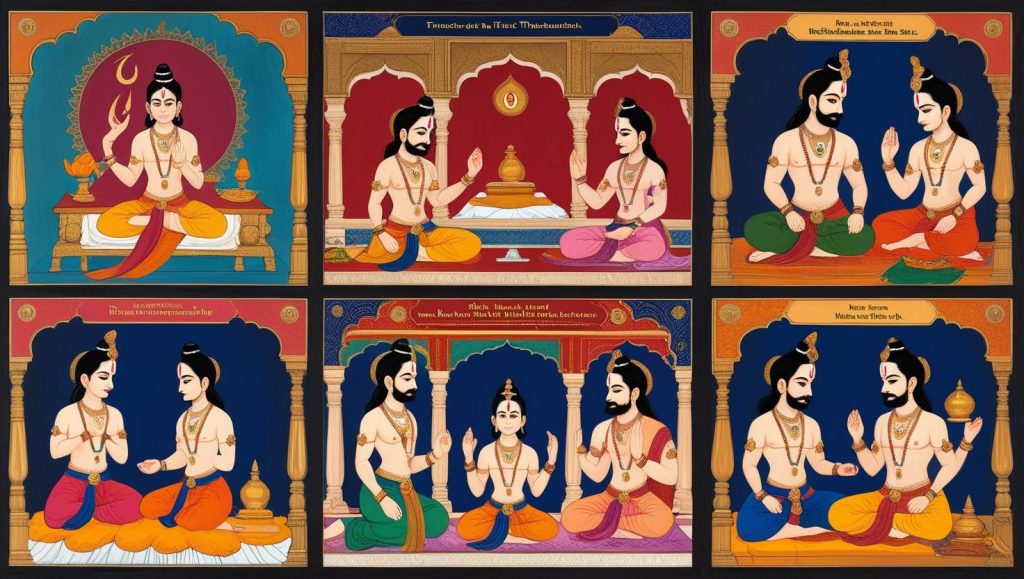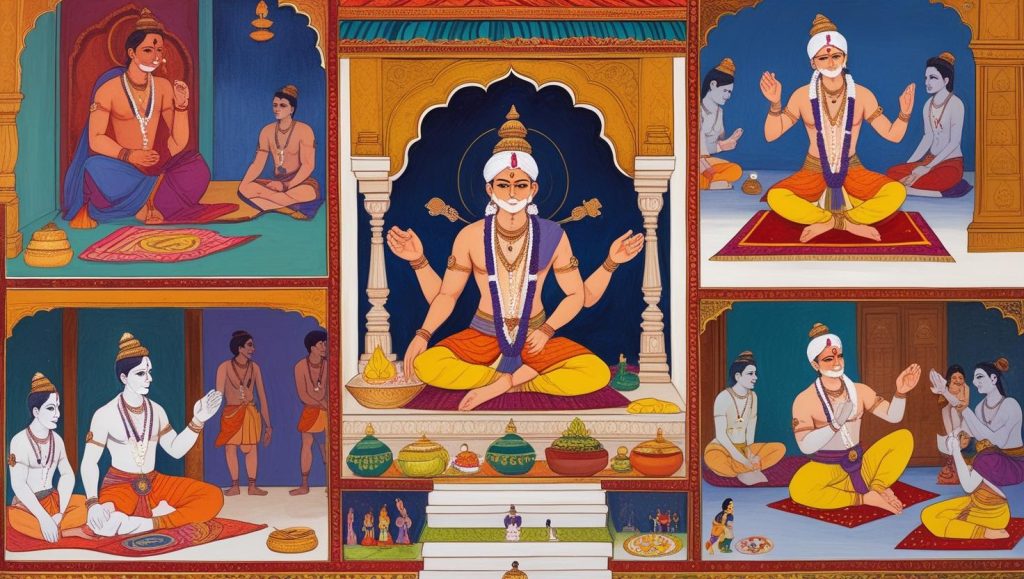In the sacred tradition of Jainism, Tirthankar Rishabhdev, also known as Adinath, occupies a place of supreme reverence. Recognized as the first Tirthankar, his life is beautifully narrated in ancient Jain scriptures like the Kalpa Sutra, Adipurana, and Bhagavati Sutra. These texts do more than recount history—they offer moral lessons, spiritual guidance, and a glimpse into an era when humanity was first introduced to the principles of dharma.

The Birth of Rishabhdev
According to Jain texts, Rishabhdev was born to King Nabhi and Queen Marudevi in the city of Ayodhya. His birth was marked by sixteen auspicious dreams seen by Queen Marudevi, symbolizing greatness, compassion, and the spiritual mission he would later fulfill. These dreams indicated that her son would become a Tirthankar, a spiritual teacher guiding souls across the ocean of life.
Teaching the Basics of Civilization
In a time when people lived a simple, nomadic life, Rishabhdev introduced the foundations of civilization—agriculture, pottery, arts, and governance. The Adipurana describes how he taught men to cultivate land, tame animals, and form communities. For women, he introduced the art of spinning and weaving. In this way, Rishabhdev was not just a spiritual leader but also a cultural pioneer.
The Path to Renunciation
One of the most touching stories from Jain scriptures describes how Rishabhdev, after ruling justly for many years, decided to renounce his throne. Inspired by an inner calling to seek the truth, he gave away all his possessions in a grand ceremony known as Varshidaan, where he offered alms continuously for a year. Finally, he took diksha (monastic vows) and embraced the path of meditation and penance.
Attaining Keval Jnana (Omniscience)
After long years of austerity, Rishabhdev attained Keval Jnana—the ultimate state of pure knowledge. Jain texts narrate that during this moment, divine beings showered flowers from the heavens, and the entire region was filled with peace and harmony. He then began to preach the eternal truths of Jain philosophy: Ahimsa (non-violence), Aparigraha (non-possession), and Satya (truth).

Stories of His Compassion
One of the well-known stories in Jain tradition speaks of Rishabhdev’s boundless compassion. Even towards those who wronged him, he showed forgiveness. When people misunderstood his silence during penance and mocked him, he remained calm, embodying the principle of forbearance (Kshama). These tales inspire followers to cultivate patience and love in the face of adversity.
Legacy in Jain Texts
The stories of Rishabhdev, preserved in texts like the Adipurana by Acharya Jinasena, are not just religious accounts—they are timeless life lessons. They remind humanity of the importance of righteous living, discipline, and spiritual awareness. His legacy continues to be celebrated through festivals, temple rituals, and pilgrimages, especially to Shri Rishabhdevji Temple in Rajasthan.
Conclusion
The stories from Jain scriptures about Tirthankar Rishabhdev are more than historical recollections—they are a beacon of light for anyone seeking a life of virtue and peace. His journey from a king to a supreme spiritual teacher shows that true greatness lies not in power, but in renunciation, compassion, and the pursuit of truth.


